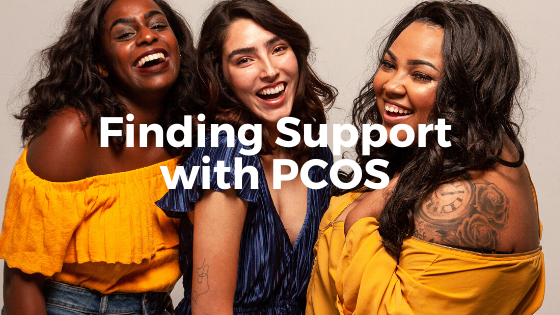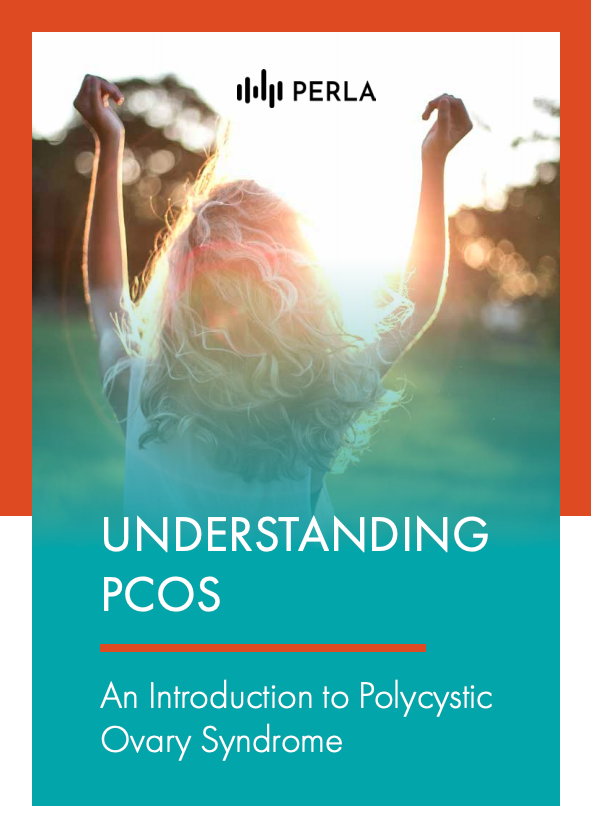PCOS is a complex condition that affects many aspects of a person’s health and their life. Researchers revealed that it may also have psychological consequences. Finding support with PCOS, though challenging, can be rewarding. PCOS awareness and support organizations help women and teenage girls overcome their symptoms and deal with the associated anxiety and stress.
Finding support and guidance after a PCOS diagnosis
Despite being a common disorder affecting women and adolescent girls, PCOS remains underdiagnosed. Some women only learn they have PCOS after seeking fertility treatment.1 Early diagnosis and treatment are important to reduce symptoms, prevent long-term complications, and increase your chances of getting pregnant.
It may take more than a year to get a proper diagnosis.2 Many patients had to consult several physicians before they were diagnosed. And once these women were able to confirm that their symptoms were due to PCOS, more than half of them reported that they received little to no emotional support or counseling.3
In addition, they also complained about the lack of information, particularly about the full range of symptoms and long-term complications. The length of time to receive a diagnosis has been linked to both anxiety and depressive symptoms.4
Some of the benefits of seeking help and support:
- Gives you useful information about PCOS
- Introduces you to others who have had similar experiences, thoughts, and feelings.
- Allows you to connect with other people, countering the sense of isolation
- Provides you a safe, supportive, and non-judgmental environment that gives you hope for healing
- Encourages you to not only receive support but to provide the same to other sufferers
Making connections
Many women find that they need to be in the company of individuals who are sympathetic to their condition. While your partner and your family are often your first line of support, it will not always be the case.
It is wise to anticipate how others will react to your diagnosis. You should be prepared for the varied and often surprising reactions of people who don’t fully grasp the burden of having the condition.
PCOS is a very common condition so you are definitely not alone! Look for support groups in your community and through non-profit organizations, such as The National Polycystic Ovary Association (PCOS Challenge), Verity, Cysters, and the PCOS Awareness Association.
Support Groups
Community support groups are available locally and some are funded by the government. You can also find specialized support groups in hospitals. A number of internet-based support groups provide educational resources, patient forums, and current information from consumers and health professionals.
Support groups may be organized or managed by volunteers (self-help support group) who are affected by the same condition or by medical professionals in institutional settings.
There are different types of support groups. Choose based on your needs and specific health concerns.
- Closed-ended: all members begin at the same time and will meet for a specific number of weeks.
- Education-based: there are elements of learning about relevant information.
- Open-discussion: the educational period is followed by conversational interaction and exploration.
- Open-ended: there may be less-structured educational content and new members can join at any time.
Health professionals
If you can’t bring yourself to talk about your condition with other people and even family members, it may be time to consult a professional. Physicians that specialize with PCOS or fertility can help you better manage your symptoms. You may be able to get some advice from your general practitioner on which professional you need to see.
You may find it helpful to work with the following:
- Endocrinologist
- Obstetrician/gynecologist
- Fertility specialist/reproductive endocrinologist
- Registered dietitian/nutritionist
- Psychologist/psychiatrist
A mental health program designed by a multidisciplinary team can improve your psychological health and quality of life.5 Ask your physician or PCOS care team for a recommendation of a mental health program or mental health specialist that would fit your needs.
Sources:
- Dennett CC, Simon J. The role of polycystic ovary syndrome in reproductive and metabolic health: overview and approaches for treatment. Diabetes Spectr. 2015;28(2):116-120. doi:10.2337/diaspect.28.2.116
- Rasquin Leon LI, Mayrin JV. Polycystic ovarian disease(Stein-leventhal syndrome). In: StatPearls. StatPearls Publishing; 2020. Accessed July 9, 2020. http://www.ncbi.nlm.nih.gov/books/NBK459251/
- Gibson-Helm ME, et al. Delayed Diagnosis and a Lack of Information Associated with Dissatisfaction in Women with Polycystic Ovary Syndrome. J Clin Endocrinol Metab. 2017;102(2):604-612.
- Deeks AA, Gibson-Helm ME, Paul E, Teede HJ. Is having polycystic ovary syndrome a predictor of poor psychological function including anxiety and depression? Hum Reprod. 2011;26(6):1399–1407
- ZareMobini F, Kazemi A, Farajzadegan Z. A comprehensive mental health care program for women with polycystic ovary syndrome: protocol for a mixed-methods study. Reprod Health. 2018;15(1):46. Published 2018 Mar 13. doi:10.1186/s12978-018-0488-5


